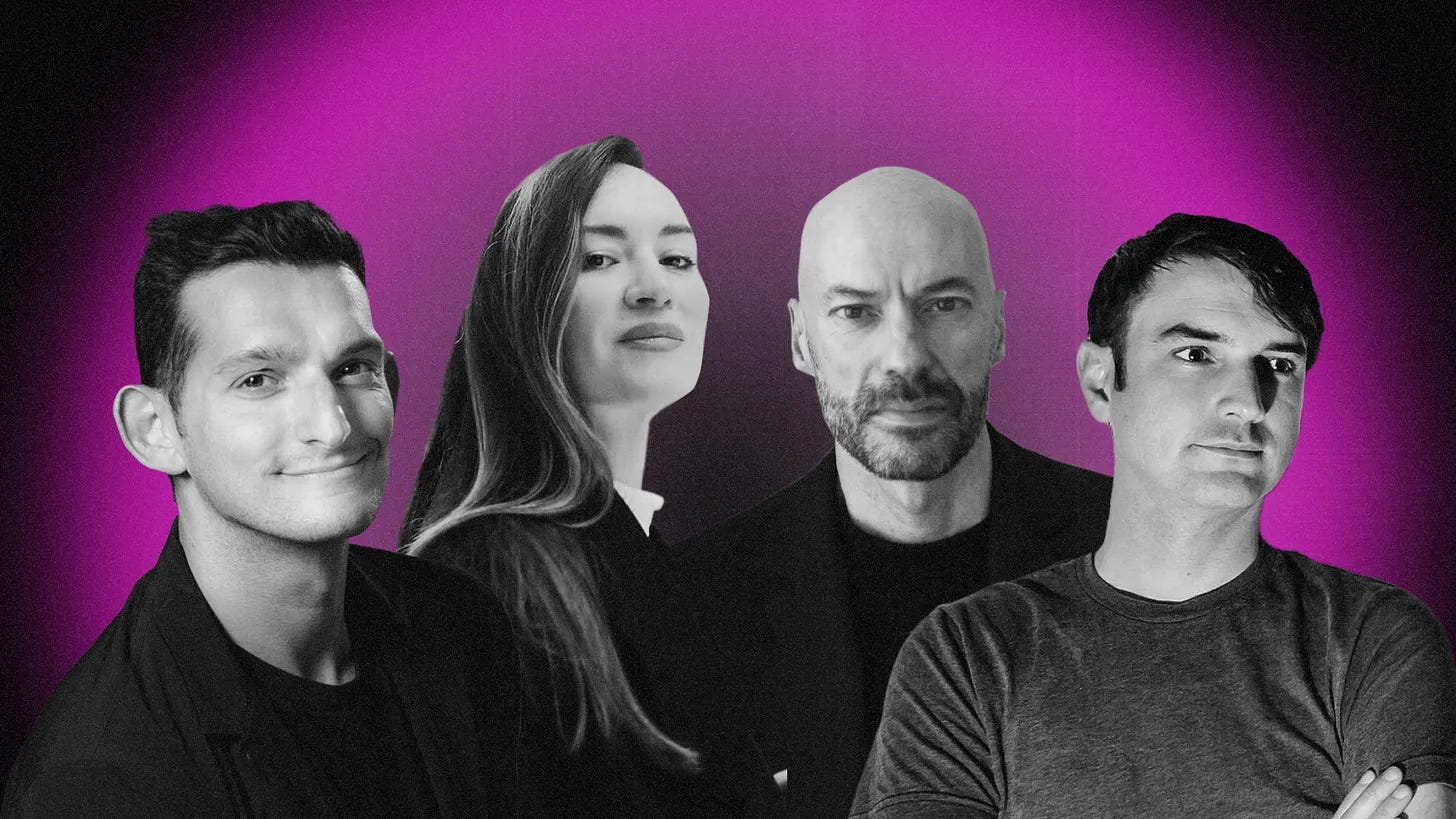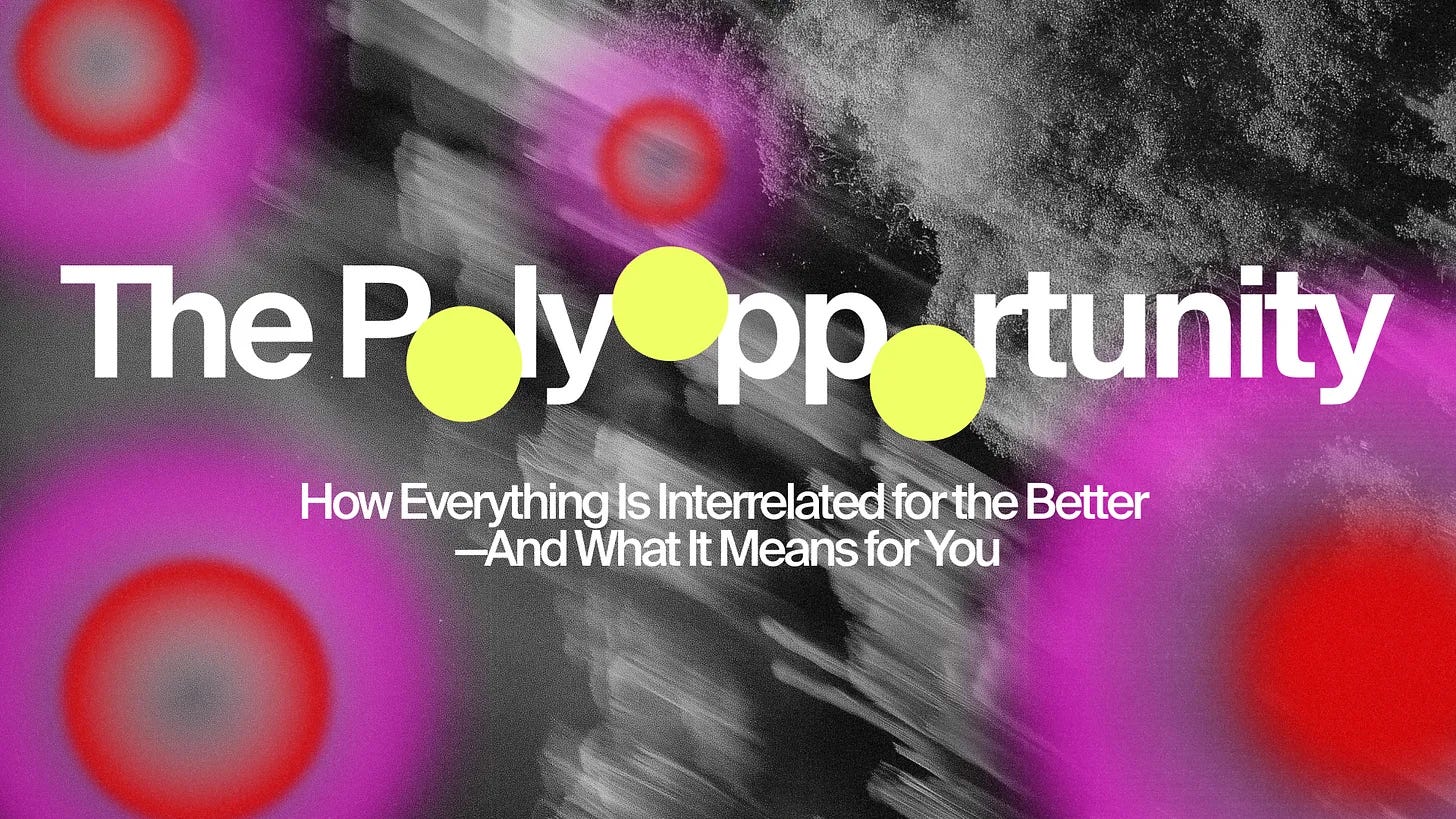The zone is flooded. We’re prisoners of the information wars. Words, meaning, and truth have been buried, while the ugly, vulgar, and profane dance on their graves. Dark Mode operates in broad daylight, because it makes for great television.
How is it possible to make meaning when believing in nothing is everything, and everything’s too much?
One answer: curation. Selecting, organizing, and presenting content, information, objects, or experiences; acting according to specific criteria or themes. Curation suggests that what and how we select matters, and that we have at least some agency and control.
It is not too much to say that curation has been one of the bedrock accomplishments of humanistic civilization. From the morass of experience, it defined our cultural and social capital, enabled taste and lifestyle, marked the difference between a productive and a meaningful, beautiful life, and made us human.
The irony of course is that curation is anything but curated these days. To say that the word has been democratized is to miss the point—it’s been flattened, branded, and mass-marketed. With every influencer, tastemaker, content creator, conference organizer, and ‘life designer’ calling themselves a curator, it’s no surprise ‘curation’ has ranked among the worst words of the year. If the idea is to signal authority through an association with specific objects—what the journalist and art educator Miya Tokumitsu calls “prestige appropriation”—curation, as a title of distinction, has come to mean anything but. After his appointment as ‘curator’ of a weekend comedy show at a major London arts venue, the comedian Stewart Lee wrote in the Financial Times, “I am a curator. What a dead word. It sounds like somebody stirring turds in a toilet bowl with a stick.”
And yet the only way to find the shine amidst the shit is curation.
Precisely because it is under attack by AI and autocrats who consider it an expression of critical thinking and direct threat to their regimes, curation matters more than ever.
Curation is the holdout in a sea of sameness and mediocrity. It is the knife that cuts through a world that talks too much, wants too much, consumes too much.
The word curate comes from the Latin curatus, the past participle of curare—“to take care of.” In the Roman world, curating meant maintaining estates, interiors, gardens, and art collections. By the Middle Ages, however, the term had gained a spiritual dimension: the curator is the priest, and cura is the spiritual charge of souls.
It was in the Renaissance that the concept became associated with historians and connoisseurs who oversaw royal and feudal collections. In the mid-sixteenth century, curators compiled Wunderkammern—cabinets of curiosities that displayed wondrous and exotic objects. It was at the beginning of the twentieth century that we saw the emergence of curators who, through their sense of discernment, garnered an aura of celebrity.
Today, in a world at once too complex and too simplistic, curation is a vital navigation device. In an economy that fracks our most precious human resource—attention—curation makes sure it is spent wisely. In a time of “flooding the zone,” curation is a form of resistance. To the rule of brutes, curation is the most delicate response.
Curation is the modus operandi of an attention economy that cares. But we must reclaim it from the art elites, corporate appropriators, influencers, and life designers. We must strengthen its ethos and power.
The latter is hard and soft. The hard power stems from the curator’s role as a gatekeeper, deciding who is included and excluded from the conversation. The soft power is in the ensuing ability to steer the conversation, set the agenda, and influence public opinion. In other words, the effective curator will drive social change.
It’s a power dynamic that inverts the geopolitical rule where soft power is derived from hard power. In curation, the stronger the soft power—the ability to influence what people should pay attention to and how they should think and feel about it—the greater their hard power: their grip on the lock, their authority to say no.
Over the past year, working on a book on curation, I have interviewed more than 30 curators—art and conference curators, creative directors, Instagram influencers, radio hosts, coders, and genetic engineers—and all agreed that saying no is at the core of the curatorial ethos. Saying no defines what matters.
The curator must choose carefully and protect firmly. They must maintain an intimate relationship between themselves and the objects of their curation so it can be intimate for the audience, too. The curator must resist all temptations to talk too much, do too much, show too much, mean too much.
Humility is key: the curator must acknowledge that they are never more important than the artist, idea, or object they present.
They must examine their biases, whilst, humbly, accepting that curation without bias is not possible.
They must stay infinitely curious and remain open to all ideas—then present those they pick and truly believe in with all the conviction and persuasion they can muster.
***
The PolyOpportunity Kicks Off Tomorrow with ‘Open Curation’!
“Open Curation” is the first of the five Opportunities of The PolyOpportunity, our year-long global initiative.
This Thursday, March 6, from 6–7:30 pm CET (noon–1:30 pm ET), we’ll gather on Zoom to explore “Open Curation” together with all PolyOpportunity attendees and the House community at large. We’ll hear about the practice of art curation from powerhouse duo Alfredo Cramerotti and Auronda Scalera; about “Telephone,” the whisper-art-around-the-world experiment, from Nathan Langston; and about algorithmic vs. human curation, and specifically what online pornography data tells us about what we really want, from digital anthropologist and ZINE creator Matt Klein.
It’s free and open for everybody; the session recordings will be available only for enrolled HoBB members. Don’t forget to sign up and join us to kick off The PolyOpportunity in style.
Go All In With the Everything Pass
To turn the polycrisis into The PolyOpportunity, we are going all out, and you're invited to go all in with us. In addition to exploring Open Curation as a new way of learning, we will zoom in on four more major Opportunities and their interrelatedness: Regenerative Economics (a new value system), Extended Consciousness (a new relationship with technology), Collective Healing (a new societal pact), and Planetary Citizenship (a new form of belonging), as well as the meta-skills (Powers) to realize them.
The PolyOpportunity program comprises four in-person events across four continents—The Berlin Salon (March 21-22), The New York Retreat (April 11-13), The Tangier Festival (May 15-17), and The Istanbul Bootcamp (June 19-20)—as well as a 12-week online learning course (September through December) and six free virtual forums (Open Houses).
The Everything Pass is the best way to take advantage of it all. This golden ticket brings you to our four PolyOpportunity gatherings in Berlin, New York, Tangier, and Istanbul, and all online programming, saving you twenty percent when you buy all at once. So even if you can only make it to two events and the online course, it is worth it. Plus, you’ll be part of a vibrant cohort traveling through The PolyOpportunity together.
Smart Girl Dumb Questions: Nayeema Raza Hosts Mark Cuban in Premiere Episode
We’re proud to share the news that our friend Nayeema Raza—who will contribute to our Polyopportunity Retreat in the Hudson Valley/NY on April 11-13—has just launched an independent podcast, Smart Girl Dumb Questions (find it on Apple, Spotify or YouTube or via Smart Girl Dumb Questions). In her first episode, with guest Mark Cuban, she plays with ideas of capitalism and socialism, and invites the billionaire to share what he’s dumb about. Prior to Smart Girl Dumb Questions, Nayeema worked at The New York Times, executive-produced and co-hosted On with Kara Swisher, and co-hosted Semafor’s Mixed Signals podcast. Nayeema moderated at our Between the Two of Us festival in Tangier last year.










This article is one of those of which I want to highlight every sentence and add exclamation marks! It put into words (Oh I love words) how I feel about my role in communications. Thank you for a thought provoking read!
Great post and great quote from Stuart Lee 🥲. Looking forward to your book!